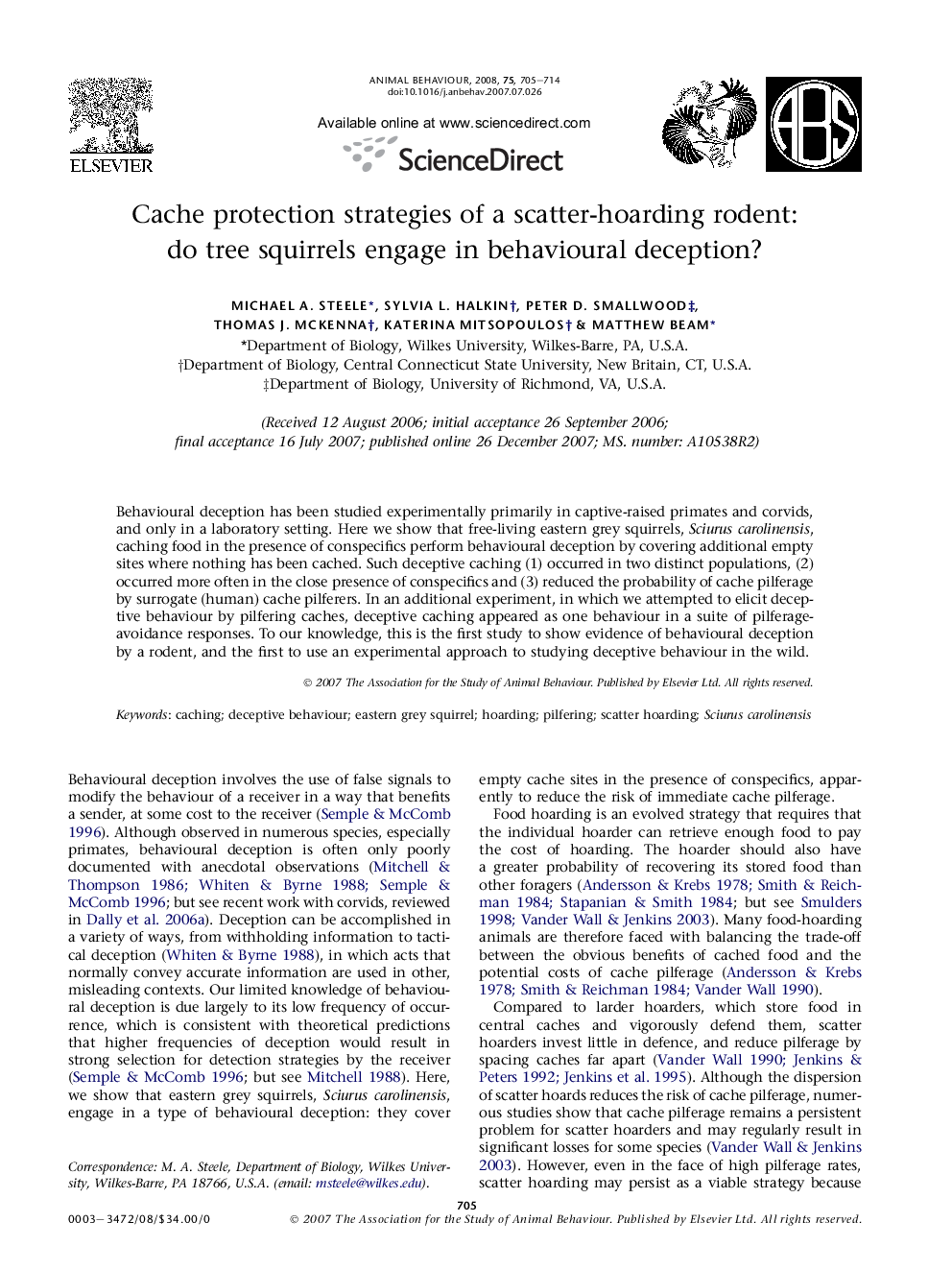| کد مقاله | کد نشریه | سال انتشار | مقاله انگلیسی | نسخه تمام متن |
|---|---|---|---|---|
| 2417921 | 1104331 | 2008 | 10 صفحه PDF | دانلود رایگان |

Behavioural deception has been studied experimentally primarily in captive-raised primates and corvids, and only in a laboratory setting. Here we show that free-living eastern grey squirrels, Sciurus carolinensis, caching food in the presence of conspecifics perform behavioural deception by covering additional empty sites where nothing has been cached. Such deceptive caching (1) occurred in two distinct populations, (2) occurred more often in the close presence of conspecifics and (3) reduced the probability of cache pilferage by surrogate (human) cache pilferers. In an additional experiment, in which we attempted to elicit deceptive behaviour by pilfering caches, deceptive caching appeared as one behaviour in a suite of pilferage-avoidance responses. To our knowledge, this is the first study to show evidence of behavioural deception by a rodent, and the first to use an experimental approach to studying deceptive behaviour in the wild.
Journal: Animal Behaviour - Volume 75, Issue 2, February 2008, Pages 705–714